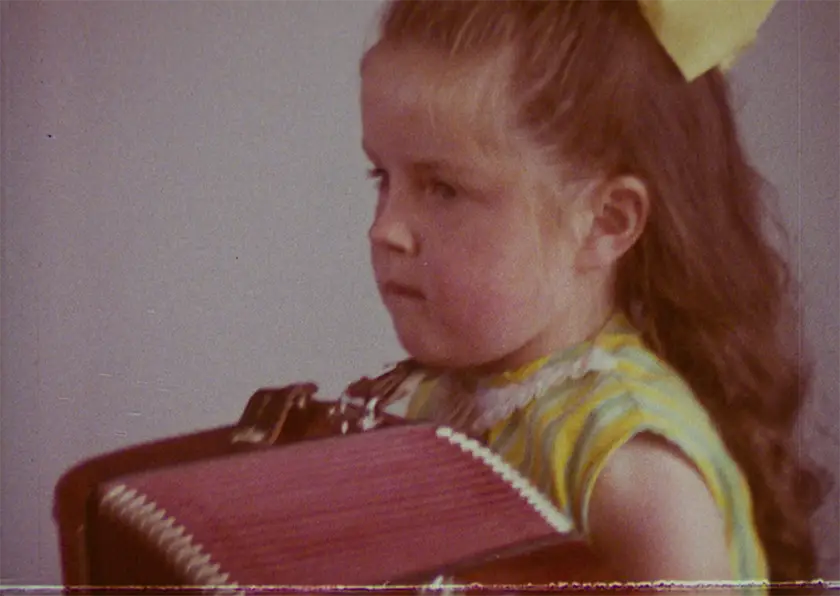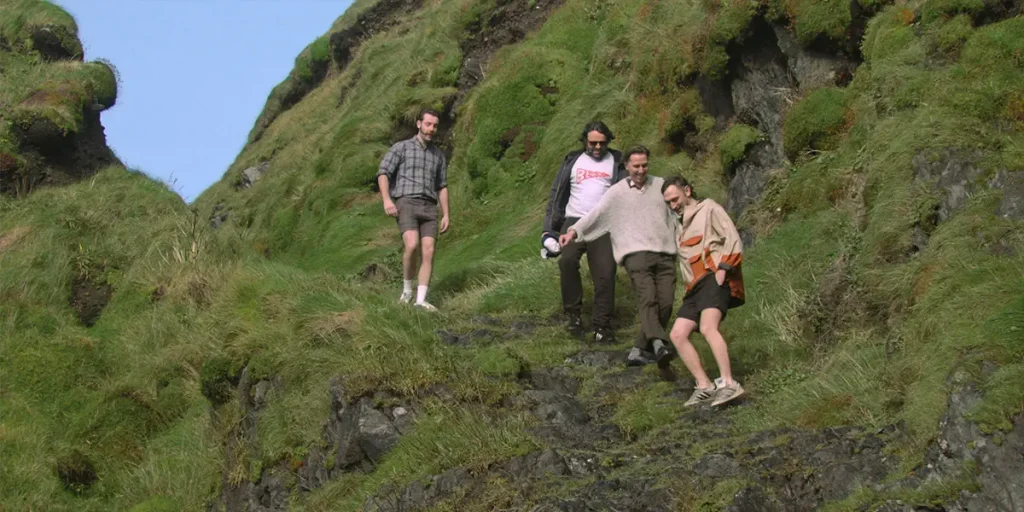Celtic Utopia (Útóipe Cheilteach) is a remarkable film that portrays the folk music scene of Ireland and its relationship to its history.
Directors: Dennis Harvey & Lars Lovén
Original Title: Útóipe Cheilteach
Locarno Screening: August 11, 2025
Genre: Documentary
Run Time: 90′
U.S. Release: TBA
U.K. Release: TBA
Where to Watch: At the Locarno Film Festival
There is a notable looseness to Celtic Utopia (Útóipe Cheilteach), a scattered structure to this documentary that is perhaps to be expected. After all, Dennis Harvey (I Must Away) and Lars Lovén’s (Fonko) film encompasses a whole country and an important part of its history in sub-90-minutes, or at least as much as it can. Yet despite this slightly stray direction, Celtic Utopia is a remarkable documentary. It charts the history of colonialism in Ireland, and more specifically, how Irish folk music relates to this aspect of society, whilst simultaneously showing how modern cultural shifts feed into such traditions.
A slow tracking shot at the start of Celtic Utopia sees four members of an Irish band, The Mary Wallopers, making their way down to a seaside vista. This band frequently pops up throughout the documentary, either in candid interviews or spine-tingling musical performances. A long list at the start of Celtic Utopia details the other musicians who also appear, from Jinx Lennon, The Deadlians, and Post Punk Podge. All of these artists are Irish, and all are markedly unique. They also share notable connections through their heritage and their country’s history.
After the establishment of the Irish Free State in 1922, the island has been reckoning with its contradictory ways. As one interviewee puts it, the Republic of Ireland has been borne out of both rebellion and deeply conservative Catholicism. Religion is, as more than one narrator points out, so deeply ingrained in Irish society that it is impossible to ignore its influence. Despite the restless nature of Celtic Utopia, where a variety of subjects are broached and then sometimes abandoned too quickly, Harvey and Lovén still do a wildly impressive job at navigating this large arena of people, history, and stories. They predominantly utilise musical performances to give us insight into the people we meet, before following up with more standard interviews.

Celtic Utopia is a genuinely energetic documentary, one that is proudly Irish and so unashamed of this that it is a joy to witness. The way music intersperses through all of these characters’ lives is so eloquently captured by Harvey and Lovén. The connection between present and past Ireland is created by mixing musical performances in contemporary areas with other scenes of archival footage. This is swift and edgy filmmaking, with a bubbling undercurrent of fierceness that fits perfectly with the stories being told.
It sometimes seems like Harvey and Lovén are unsure about what direction to go next, and what subject to linger on, but their main focus is always, inevitably, drawn back to the music. The songs, delivered in both English and Irish Gaelic, are transfixing for a multitude of reasons, from their gorgeous compositions to their mesmerising lyrics. Nearly all of them are delivered acoustically, authentically grounding Celtic Utopia in its world completely.
We witness how Irish folk music has transformed over the years, now with punk and hip-hop influences branching throughout the genre, and how Irish society uses these songs to tell stories of their past, both the beauty and hardship of it. The music is also a way to protest; bands like The Mary Wallopers, for example, want to scare politicians with their music, not “sell Citroëns”. Most impressively, Celtic Utopia recognises how complex the historical divisions of this country are, and what sort of future is possible in the face of this. Clocking in at around 90 minutes, Celtic Utopia is brief, but every second points to the potential harmony of this future.
Celtic Utopia – Útóipe Cheilteach (Locarno Film Festival): Movie Plot & Recap
Synopsis:
Celtic Utopia tells the story of Ireland’s past and present, delving into its colonial history and folk music scene. Through archive footage, contemporary performances, and interviews, the intrinsic connection between is studied in fascinating detail.
Pros:
- The various musical performances are all magical in their own right
- An entrancing tone makes it impossible to look away
- Skilfully blends the history of Ireland with its present
Cons:
- A scattered structure sometimes diminishes the film’s impact
- Some interesting subjects aren’t observed in enough depth
Celtic Utopia (Útóipe Cheilteach) had its World Premiere at the Locarno Film Festival on August 11, 2025. The film will be screened again on August 12.

